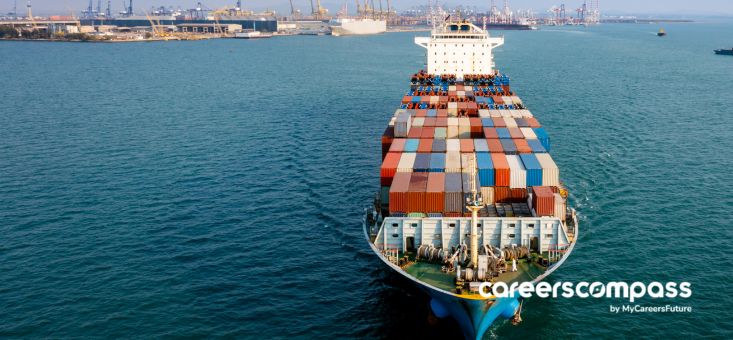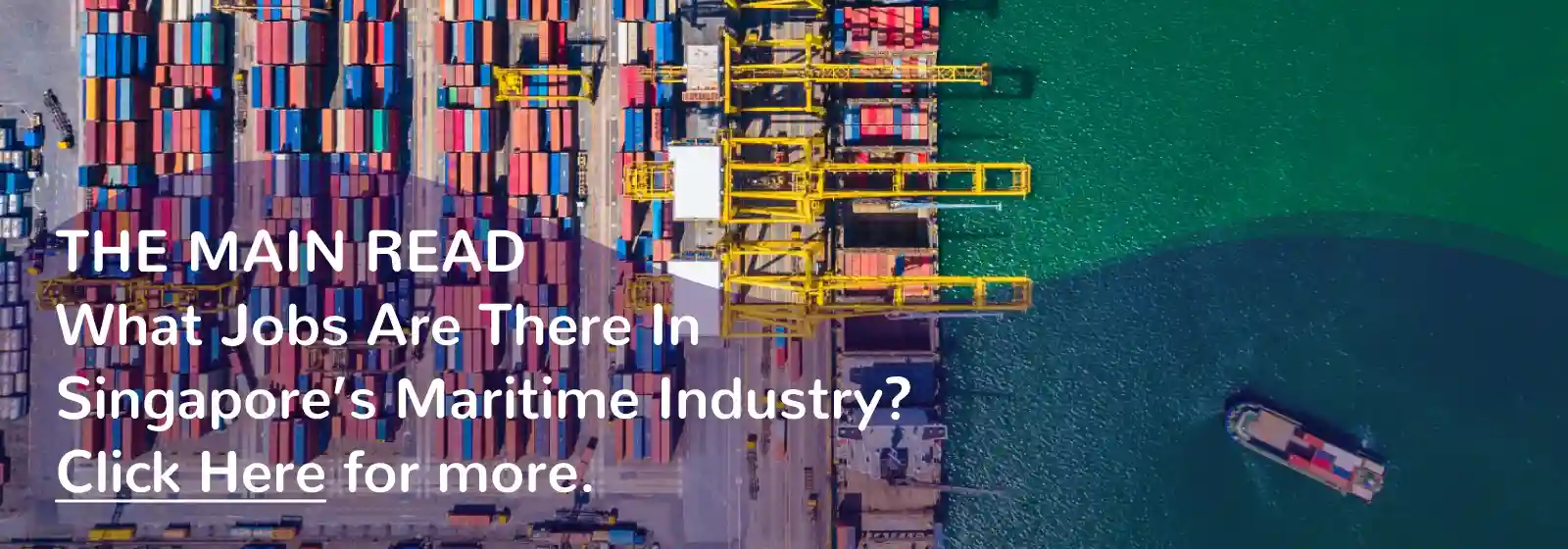Your questions about the maritime industry answered
-
Do I need a maritime-related degree to join the industry?
-
What are the high-demand shore-based jobs in Singapore’s maritime sector?
-
Is the maritime industry in Singapore only for seafarers?
-
How is technology changing maritime careers in Singapore?
Did you know that shipping moves 90% of world trade? Multiple players from different sectors within the maritime ecosystem work together to bring us most of what we need and use on a daily basis – from the flour for our bread at breakfast, to the vehicles for our commute, and even the latest IT gadgets.
Singapore stands as one of the world’s premier maritime hubs, consistently ranking as the top bunkering port globally and the second-largest container port by throughput. This concentration of over 5,000 maritime organisations creates a robust ecosystem that generates significant employment opportunities across all skill levels.
For professionals considering maritime careers, Singapore’s position as a global maritime leader translates into exceptional job stability and promising growth prospects, as the industry continues to expand with international trade and technological advancement.
The sector’s contribution of approximately 7% to Singapore’s GDP and employment of over 170,000 people demonstrates the government’s continued commitment to maintaining the nation’s maritime leadership.

Three individuals at various stages of their careers – a fresh graduate, a mid-career switcher, and an industry veteran, break down three myths and misconceptions about maritime careers.
Myth #1: Shipping is a niche industry and it is very hard to break into
When Valerie Kor decided to pursue her degree in Maritime Studies at Nanyang Technological University (NTU), she knew nothing about this industry.
“The general perception is that shipping is a niche industry. However, it is actually very broad as there are various roles in the technical, commercial, insurance, HR and even accounting aspects. Anyone can join the maritime industry regardless of their educational background,” Valerie shared.
Find your next job on MyCareersFuture. We have over 100,000 job opportunities daily for you.
A management trainee programme is a good bridge from one’s studies to starting one’s maritime career. Valerie joined TORM Singapore as a Shipping Trainee in July 2018 after her graduation. As part of the programme, she visited several vessels both in Singapore and Denmark, where she had the chance to meet with the Captain and crew.
Such opportunities allowed her to learn about various aspects of the shipping business, including the technical side. She also had the exciting opportunity of studying in Denmark under the Danish Shipping Academy’s Commercial Shipping Program, where she interacted and was taught together with trainees from other shipping companies.
On the corporate front, her work involves meeting brokers and customers. She is most thankful that her colleagues are approachable and helpful, which really facilitated her learning process and improved her understanding of the industry.
To address the misconception that shipping is a niche industry, Valerie thinks that it is very important to first create interest in the industry. She cited the example of how her friends and relatives proactively asked her more about the maritime industry when Prime Minister Lee Hsien Loong spoke about the new Tuas Port at the National Day Rally. It was a good opportunity for her to tell them more about her work.
“Before I enrolled in NTU’s Maritime Business course, I knew nothing about the maritime industry. However, everyone I met during my internship and my current workplace has been very helpful and nurturing. They are always happy to teach and guide others.”
– Valerie Kor, Shipping Trainee of TORM Singapore Pte Ltd
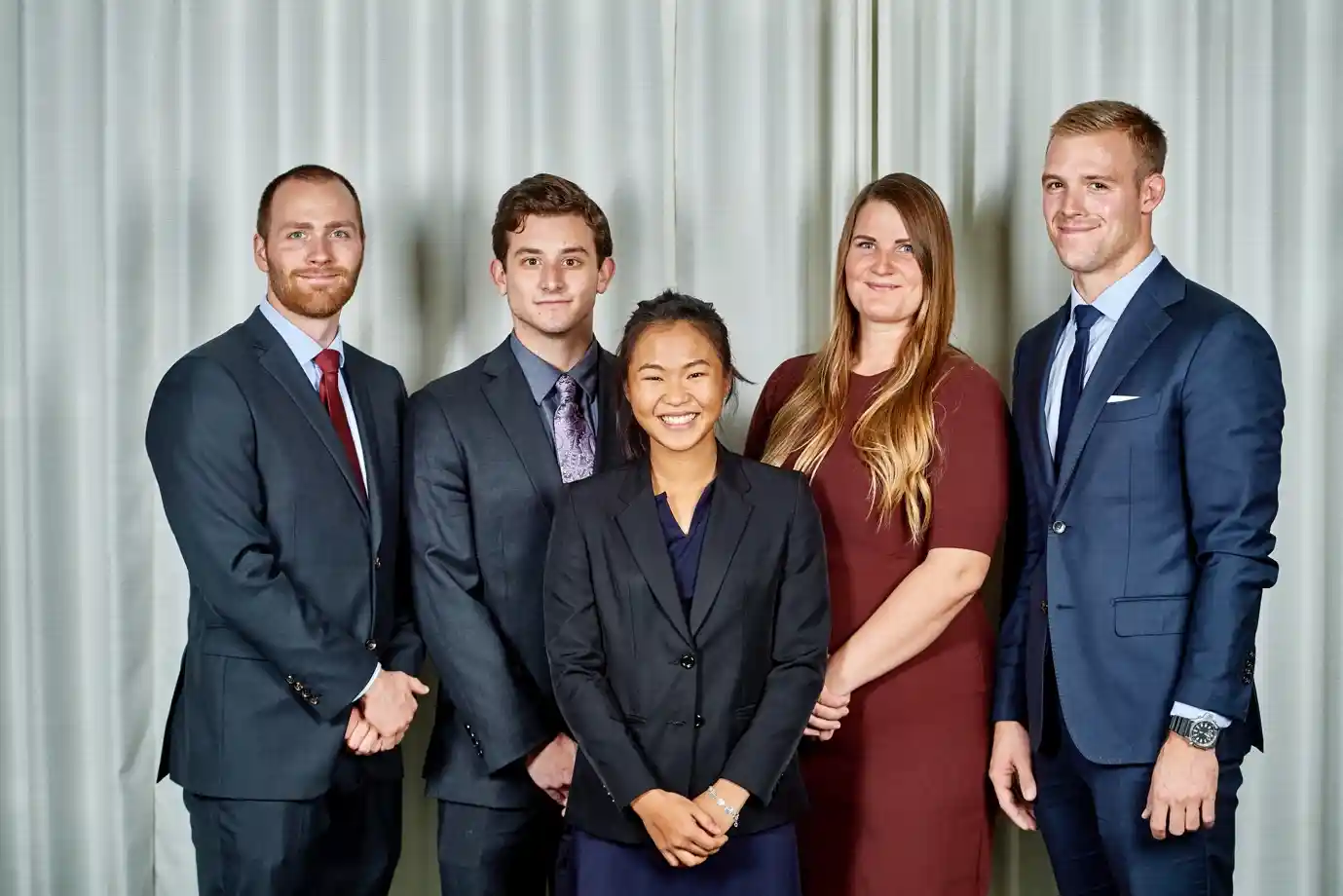
Myth #2: Shipping is part of a rigid, age-old industry and it is boring
“When I’m out with my friends, my phone keeps ringing and people wonder what kind of job I am doing.”
– Matthew Chan, Boarding Officer of Wallem Shipping (S) Pte Ltd
Having experience in both the retail and hospitality industries previously, Matthew Chan eventually found his calling as a boarding officer with a shipping agency. As one who does not like “staying in the office all day”, he enjoys the challenges that come along with his current job.
Similar to a travel agent, a boarding officer is responsible for coordinating all kinds of services for vessels. In this role, Matthew is the main point of contact for a ship’s every need, from arranging for refuelling to preparing the necessary documentation for port clearance.
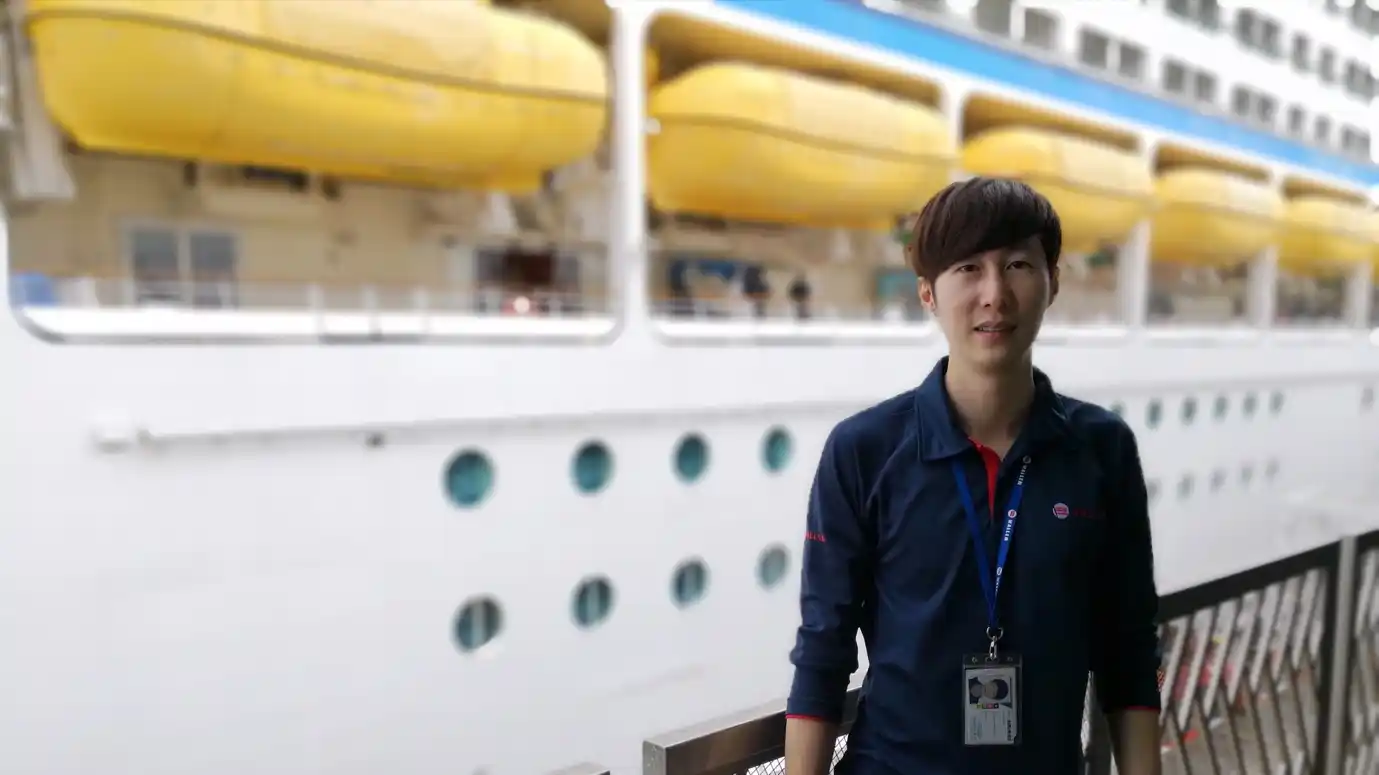
Matthew’s job requires him to keep up to date with the latest maritime regulations as he handles the vessels’ documentation when they arrive in Singapore. He also needs to know what is required to manage vessels of different sizes and functionalities. As a boarding officer, he is always kept on his toes and there is never a dull moment at work.
A good understanding of his clients’ needs enables Matthew to gain their trust and attract a greater clientele. While his clients may have different, and sometimes, unusual requests, Matthew goes the extra mile.
“Some people think that boarding officers have a magic bag of tricks,” laughs Matthew. “For example, people ask where they can buy things – from the best char kway teow to Rolex watches (because they hear that it is cheaper here), to even a specific type of furniture from IKEA.” While these are not his core duties, he tries his best to help them where possible, while prioritising the most important tasks.
“Is it a myth that boarding officers have to give up their holidays and weekends? It’s the truth at times because ships can call at port any time,” quipped Matthew, when asked about his working hours.
He added, “But it’s simply the nature of operations; I have a friend in the IT industry who deals with servers, and he’s always out on the job too. The upside for me, though, is that my work is never boring!”
Myth #3: Seafaring careers are no longer favourable professions for Singaporeans today
With 49 years of experience in the maritime industry, Lim Tau Kok has had an illustrious career and a wealth of insights into how the industry has been and is currently perceived.
According to Tau Kok, marine engineering is one of the least known and most misunderstood specialisations in the field of engineering. For example, more would be familiar with the job scope of a mechanical engineer than a marine engineer. Yet, many are unaware of the fact that marine engineers possess a very wide range of skills because of their diverse job scope.
While a marine engineer’s primary role is to maintain the ship’s machinery, their literal position at sea calls for them to also be versed in mechanical and electrical engineering, among others. Their work requires them to be responsible for all other equipment on the ship – even the air conditioning system and down to the boiler. Tau Kok remarked, “Marine engineers make good husbands – we are very handy around the house, and I help to fix everything in my home.”
Tau Kok, himself, is a testament that marine engineers can go far in their careers, having taken on key senior-level positions in the maritime industry, such as the Executive Director at Pacific Carriers Limited (PCL).
To improve the general perception of the maritime industry, he drew reference to an industry that has done a good job at elevating its profession — the culinary industry. He said, “Before, we used to call them ‘cooks’. Now we call them ‘chefs’. University graduates are opening hawker stalls, and people go to Shatec, aspiring to become chefs. Branding, celebrity chefs and cooking shows have elevated the status of the culinary profession. We should do the same for maritime careers.”
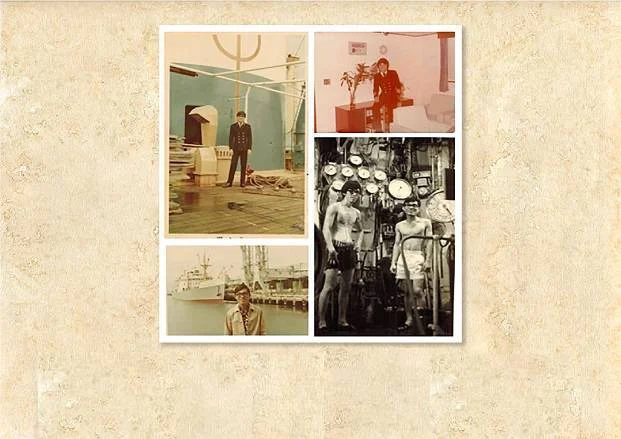
“When you go where few people want to go, it’s easier to be successful. When you go with the masses, the competition will be very stiff.”
– Lim Tau Kok, Advisor at Wavelink Maritime Institute
While it may not be widely known, there is plenty of opportunities and structured career progression for maritime roles. In fact, it is precisely what attracted many of Tau Kok’s students at Wavelink Maritime Institute (WMI), where he currently lectures. The structured career progression for deck officers and marine engineers appeal to the many who want a clear view of their future.
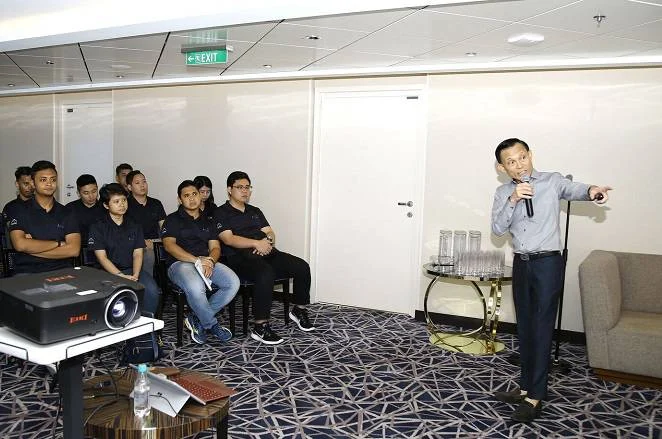
Tau Kok feels that it would be helpful to get young people to tell other young people about the industry to reduce misperceptions. While industry veterans like himself could impart stories and knowledge, students see them as coming from a different generation with different challenges. “The industry needs to speak the language that the young use and engage with them on the networks that they frequent,” he adds.
The future of maritime careers
Singapore’s maritime industry is at the forefront of a technological revolution that is creating entirely new career opportunities. The push towards decarbonisation has sparked demand for professionals skilled in alternative fuels, whilst smart port technologies require experts in data analytics and digital logistics.
Maritime professionals today work with autonomous vessels, blockchain tracking, and emission monitoring systems—far from the outdated image of a traditional industry.
This transformation means maritime careers now offer dynamic and future-focused opportunities. From sustainability consultants helping companies meet net-zero targets to digital specialists developing smart shipping solutions, the industry seeks fresh talent with diverse skill sets.
As Singapore invests in green port infrastructure and maritime technology, professionals can expect to shape the future of international trade and environmental responsibility.
Besides providing us with everyday essentials, a career in the maritime industry is accessible to those without a maritime background, providing one with an exciting and reputable career.
Follow us on LinkedIn for more expert career guidance and industry insights: Workforce Singapore on LinkedIn
Stay updated with the latest trends, job market shifts and career health advice from WSG.


